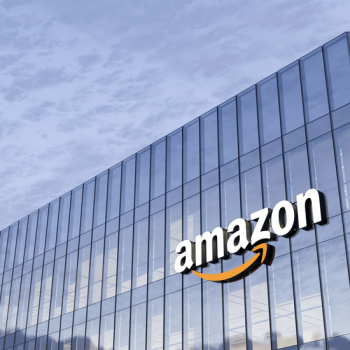If you're keeping tabs on the insurance industry then you've likely seen, heard, or read about the "insurance talent gap."
TL;DR: Insurance is dealing with a rapidly aging and retiring workforce, while simultaneously being unable to lure the next generation of talent.
Is this real?
An industry that's been around for thousands of years and recently had record funding levels is facing a staffing crisis?
Breeze, an insurtech ourselves, put this theory to the test.
We surveyed 1,000 college-graduated and actively-employed adult Americans between the ages of 22 and 30.
- Amongst current insurance professionals in this group, 92% see themselves remaining at their current insurance job for the next year. 78% expect to remain in insurance at their next job. 61% want to be in insurance for the next 20 years.
- Insurance professionals gave their current jobs higher ratings for “opportunity” and “sexiness” compared to non-insurance professionals. Both groups gave equal ratings for “satisfaction” and “stability.”
- Amongst non-insurance professionals, 65% are still open to working in insurance. 57% from this group would rather work at a traditional insurance company over a newer insurtech.
More on everything in the analysis. Click here to jump to the full survey results.
Compared to other industries, young insurance professionals feel just as good (sometimes better) about their career choice
Note: If you'd like to see the raw data or data broken down by state, race, age, etc., please email me at [email protected]
Our 1,000 college-educated, actively-employed adult Americans between the ages of 22 and 30 were segmented into two groups – those who currently work in insurance and everybody else.
Both groups were asked the same set of four questions. On a scale from 1 (least) to 10 (most), they were asked to rate their current job for satisfaction, stability, opportunity, and sexiness.
This side-by-side looks good for the insurance industry.
Young insurance employees are just as satisfied and just as stable as their counterparts in other industries.
And they're actually more bullish about their growth opportunities in insurance.
Perhaps most surprising, insurance received a higher score for sexiness compared to the other aggregated industries. Traditionally seen as a mundane necessity, insurance has rarely been mistaken as "sexy" so this is certainly a positive sign for the future of insurance hiring.
Insurance winning the "opportunity" and "sexiness" categories could possibly be attributed to the booming rise of insurtechs, who are well-funded, tech-driven, and appeal to a younger generation of consumers/workers.
61% of insurance professionals want to stay in the industry for the next 20 years
Amongst our poll participants employed by the insurance industry, 55% said working in insurance was what they wanted to do. The other 45% took an insurance job for another reason like a higher salary.
But it doesn't matter how they got here, just what happens next.
That's because a sweeping 92% of insurance professionals see themselves remaining at their current job for at least the next year. 8% do not.
Keep it rolling: 78% from this group expect they will remain in insurance after their current job, while 22% do not.
And finally, the header stat...
Nearly two-thirds of young, college-educated insurance professionals WANT their career to be in the insurance industry for the next two decades.
This section also bodes well for insurance employers. Young employees see their job in insurance as a career, not just a way to pay the bills.
65% of non-insurance professionals are still open to working in insurance
Respondents not working in insurance were asked the following: "Would you ever want to work in the insurance industry in the future?"
Even if current insurance professionals (who seem to be happy) left their positions, insurance employers shouldn't panic as the insurance industry is still a desirable landing spot for many non-insurance professionals.
Moreover, if insurance companies ever encountered staffing difficulties, our study found there's an ole' reliable lever they can pull...
The almighty dollar: Amongst non-insurance professionals, 75% would consider a job offer from an insurance company if it was a 10% pay increase compared to their current job. 25% would not.
The overarching theme from this report's data is that insurance employers should not be too worried about the insurance talent gap. Most college graduates between the ages of 22 and 30 already enjoy their careers in the insurance industry, or still want to work in the insurance industry, OR could be lured to the insurance industry.
If insurance companies continue to do their jobs as employers, the employees will be there.
Traditional insurance companies hold hiring edge over insurtechs
The insurtech revolution has been well-funded and well-published.
Legacy insurance companies face an increased level of competition from new-age insurtechs who use technology and predictive analytics to simplify, digitize, and refresh the insurance buying experience.
But, our data revealed the former still holds a hiring edge over the latter.
It's not too surprising to see 75% of current insurance professionals working for traditional insurance companies, while just 25% work for insurtechs. The legacy side of the industry still dwarfs the insurtech side.
What was surprising was 57% of non-insurance professionals saying they'd rather work for the legacy side, while 43% would opt for an insurtech.
One might think this group of young employees would be more inclined to work for new-age insurtechs, but perhaps the security that comes with a traditional insurance company is most-appealing.
Employers, recruit & retain the best workforce talent with paid parental leave insurance
As an employer, one of the most surefire ways you can start recruiting and retaining the best workforce talent is by offering some of the best employee benefits.
This could include things like a 401(k) match, unlimited PTO, or group short-term disability insurance.
But the one employee benefit that makes you a true differentiator is paid parental leave.
With just 19% of US employees having access to paid parental leave, offering this employee benefit immediately makes you stand out as an employer. For example, Unum found 86% of millennials are less likely to quit a job if the employer offers paid parental leave.
Methodology
All data found within this report derives from a survey created and commissioned by Breeze and conducted online by survey platform Pollfish. In total, 1,000 college-graduated and actively-employed Americans between the ages of 22 and 30 were surveyed. The appropriate respondents were found via Pollfish’s age, education, and occupation filtering features. This survey was conducted between September 14th, 2022 and September 16th, 2022.
Full survey results
Notes: Some answers won't add up to exactly 100% due to rounding.
If you'd like to see the raw data or data broken down by state, race, age, etc., please email me at [email protected]
1. Are you currently working in the insurance industry?
- 29% answered "yes"
- 71% answered "no"
2. (If "yes" to Q1) Did you want to be working in the insurance industry or did you take the insurance job for another reason (i.e. necessity, higher salary, etc.)?
- 55% answered "I wanted to be working in the insurance industry."
- 45% answered "I took the insurance job for another reason (i.e. necessity, higher salary, etc.)."
3. (If "yes" to Q1) Are you working for a traditional insurance company (i.e. carrier, brokerage) or are you working for a younger insurtech?
- 75% answered "traditional insurance company"
- 25% answered "younger insurtech"
4. (If "yes" to Q1) On a scale from 1 (least satisfied) to 10 (most satisfied), how satisfied are you with your current job in the insurance industry?
- The average answer was 7. The plurality (26%) answered 8.
5. (If "yes" to Q1) On a scale from 1 (least stable) to 10 (most stable), how stable do you think your current job in the insurance industry is?
- The average answer was 7. The plurality (29%) answered 8.
6. (If "yes" to Q1) On a scale from 1 (least opportunity) to 10 (most opportunity), how much opportunity do you think there is with your current job in the insurance industry?
- The average answer was 7. The plurality (20%) answered 8.
7. (If "yes" to Q1) On a scale from 1 (least sexy) to 10 (most sexy), how sexy do you think your current job in the insurance industry is?
- The average answer was 5. The plurality (15%) answered 1.
8. (If "yes" to Q1) Which of the following best describes your current job in the insurance industry?
- 14% answered "agent/broker/wholesaler/advisor"
- 12% answered "marketing/PR"
- 21% answered "accounting/finance"
- 3% answered "compliance/legal"
- 10% answered "tech/developer"
- 5% answered "HR/back-office"
- 17% answered "customer service"
- 2% answered "underwriting"
- 3% answered "adjuster"
- 7% answered "claims rep"
- 5% answered "other/none of the above"
9. (If "yes" to Q1) Do you see yourself remaining at your current insurance job for at least the next year?
- 92% answered "yes"
- 8% answered "no"
10. (If "yes" to Q1) Do you see yourself remaining in the insurance industry after this current job?
- 78% answered "yes"
- 22% answered "no"
11. (If "yes" to Q1) Do you want your career to be in the insurance industry for the next 20 years?
- 61% answered "yes"
- 39% answered "no"
12. (If "no" to Q1) Prior to your current job, did you ever hold a full-time position in the insurance industry?
- 8% answered "yes"
- 92% answered "no"
13. (If "no" to Q1 & "yes" to Q12) Which of the following best describes why you left that insurance industry position?
- 5% answered "fired/laid-off"
- 32% answered "found a job with better pay"
- 27% answered "found a job with better hours/work-life balance"
- 10% answered "found a more interesting/satisfying job"
- 10% answered "did not like working in insurance"
- 8% answered "did not like my employer"
- 8% answered "other/none of the above"
14. (If "no" to Q1 & "no" to Q12) Did you interview for any insurance industry positions or did you not even look at insurance industry jobs?
- 21% answered "I interviewed for insurance industry positions."
- 79% answered "I didn't even look at insurance industry positions."
15. (If "no to Q1, "no" to Q12, & "I interviewed..." to Q14) Were you offered a position in the insurance industry?
- 65% answered "yes, but declined for another opportunity"
- 35% answered "no"
16. (If "no" to Q1) Would you ever want to work in the insurance industry in the future?
- 65% answered "Yes, if the situation was right."
- 35% answered "no"
17. (If "no" to Q1 & "no" to Q16) Which of the following best describes why you don’t want to ever work in the insurance industry?
- 7% answered "not a lot of opportunity to make money"
- 4% answered "The industry is too old/antiquated."
- 19% answered "The concept/model of an insurance business feels wrong/dirty to me."
- 47% answered "just seems boring/not interested"
- 8% answered "too much bureaucracy/red tape"
- 3% answered "not much upward mobility if you don't know someone in the industry"
- 11% answered "other/none of the above"
18. (If "no" to Q1) If you had to work in the insurance industry, would you want to work for a traditional insurance company (i.e. carrier, brokerage) or a younger insurtech?
- 57% answered "traditional insurance company"
- 43% answered "younger insurtech"
19. (If "no" to Q1) If an insurance company made you an offer with a 10% pay increase compared to your current job, would you consider the offer?
- 75% answered "yes"
- 25% answered "no"
20. (If "no" to Q1) If an insurance company made you an offer with a 25% pay increase compared to your current job, would you consider the offer?
- 85% answered "yes"
- 15% answered "no"
21. (If "no" to Q1) If an insurance company made you an offer with a 50% pay increase compared to your current job, would you consider the offer?
- 92% answered "yes"
- 8% answered "no"
22. (If "no" to Q1) On a scale from 1 (least satisfied) to 10 (most satisfied), how satisfied are you with your current job?
- The average answer was 7. The plurality (28%) answered 8.
23. (If "no" to Q1) On a scale from 1 (least stable) to 10 (most stable), how stable do you think your current job is?
- The average answer was 7. The plurality (25%) answered 8.
24. (If "no" to Q1) On a scale from 1 (least opportunity) to 10 (most opportunity), how much opportunity do you think there is with your current job?
- The average answer was 6. The plurality (18%) answered 8.
25. (If "no" to Q1) On a scale from 1 (least sexy) to 10 (most sexy), how sexy do you think your current job is?
- The average answer was 4. The plurality (35%) answered 1.










